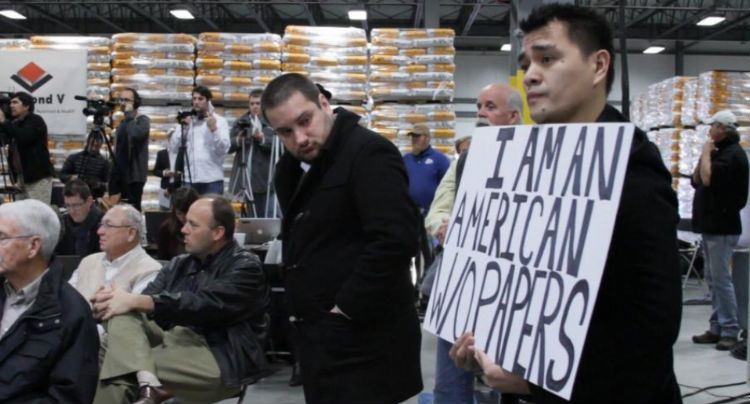
Very little to offer by way of visual style, but what it lacks in cinematic value it makes up for in raw emotion.

Very little to offer by way of visual style, but what it lacks in cinematic value it makes up for in raw emotion.
Putting a human face on a broad political issue is one of the most tried-and-true documentary formulas there is, and Documented maximizes the potential of the formula by delivering a clear message and presenting the human angle with palpable urgency. The film, by Pulitzer Prize-winning reporter Jose Antonio Vargas, is about outing himself as an undocumented American immigrant and exposing the U.S.’s broken immigration policies, but its most engrossing arc follows his painful relationship with the mother he hasn’t seen in over twenty years and the heartache and longing that haunts them both.
“Dreamers” are immigrants brought to America as children but have no avenue to legally apply for U.S. citizenship. In many cases, they’re as participatory in American culture as any legal citizen, working jobs and even paying taxes. Vargas (now 33) arrived in the U.S. at the age of 12, sent by his mother in the Philippines to live with his grandparents in California. He thrived in his new home, excelling in school and adopting several mother figures, but he found it hard to come to terms with the separation from his biological mother, who he continued to send money but eventually cut all communications with.
Vargas came out as gay at a young age because he found the prospect of coming out as gay less frightening than coming out as undocumented, an astonishing illustration of the true gravity of his predicament. Despite “dreamers” having no choice in their undocumented origins, there is currently no avenue for Vargas to pursue U.S. citizenship, a fatal flaw in immigration policy that he’s spent the past few years combating in the public eye.

In 2011, Vargas wrote an article in the New York Times Magazine in which he openly admitted to being undocumented, causing him to lose his driver’s license. He also appeared on the cover of Time with several other undocumented immigrants. Since the groundbreaking piece, he hasn’t been deported for reasons that remain a mystery and cause him anxiety and paranoia. “What do you want to do with me?” Vargas pleads at an immigration reform meeting. The film follows Vargas on his tour of spreading awareness. We see him getting kicked out of a Romney rally by a cop, who admits that it is protocol for officers to report illegal immigrants, but he won’t turn Vargas in, adding to the confusion of the pickle he’s in.
A little more than halfway through the film switches perspectives, focusing Vargas’ mother and examining the roots of her decision to send him away to America. Because she could risk exile from the Philippines by traveling to the U.S., she was never able to visit Jose, which slowly broke her son’s heart over the years. She wrote him letters and sent him texts and phone calls, but he couldn’t bring himself to respond due to his inner turmoil surrounding the separation. In an utterly heartbreaking moment, Vargas Skypes with his mother and sees her for the first time since their split. It’s riveting.
The film’s major tragedy is the that President Obama did recently open up a path to citizenship for undocumented immigrants, but Vargas missed the age cutoff by only two years. Vargas is a maelstrom of emotion when he receives the news, and it’s saddening to watch him receive texts from friends mistakenly believing he’s finally been given the opportunity to follow his dream. Documented has very little to offer by way of visual style, but what it lacks in cinematic value it makes up for in raw emotion.